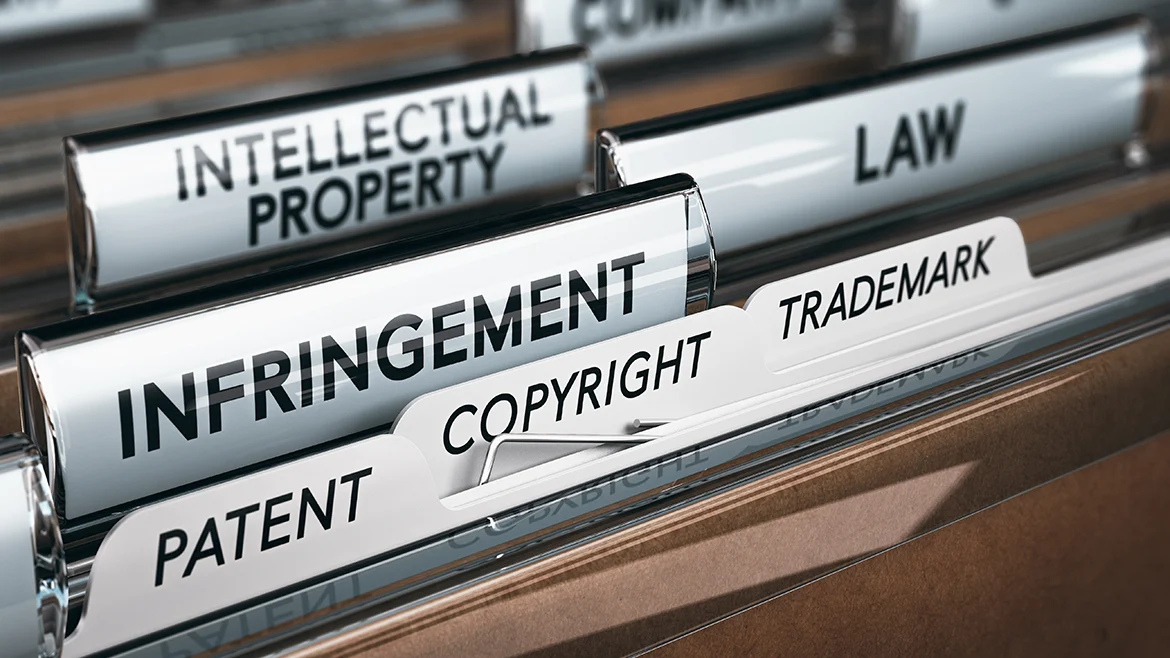Some of the most important assets in your business may be your intellectual property. These are intangible assets, including patents, trademarks and trade secrets. The U.S. government created these protections to keep your intellectual property against infringement.
Patents
What is a patent? A patent is the legal protection granted by the federal government to an inventor to encourage progress and prevent others from benefiting from the invention.
What does patent protection provide? Patent protection involves the right to exclude others from making, using or selling anything that would fall under the claims of the issued patent. The duration of the patent protection depends on the type of patent.
What factors are considered when determining whether a patent has been infringed? Determining whether a patent has been infringed entails the court examining the claims of the patent and comparing them to the accused device or process. This may be more complex in situations where the claims terms are unclear or ambiguous. The court can determine that infringement exists even if the accused device or process isn’t identical to the original. If the device performs substantially the same function in largely the same way to produce substantially identical results, it is likely that a court would find infringement.
What are my rights if someone infringes my patent? You may file suit in a federal district court to enforce your patent against an infringer. If you are successful, there are many possible outcomes. Courts look to compensate the patent holder with damages for lost profits and/or punitive damages for willful infringement.
Patents, trademarks and trade secrets were created by the government in order to protect your intellectual property against infringement.
Trademarks
What is a trademark? A trademark serves to identify a single source for goods or services, membership in an organization or approval from a quality assurance program. It can be a product name, a brand, a slogan, a color and even a scent. Federal law allows for the protection of trademarks.
What does trademark protection provide? The scope of the protection can vary widely depending on the strength and fame of a mark. For instance, many brand names are famous marks that are very strong. The length of time that a mark can be protected is indefinite because it is based upon use, but federal registrations have an initial term of 10 years. A mark may be renewed in successive 10-year increments as long as the mark is still in use.
What factors are considered when determining whether a trademark has been infringed? Whether a trademark has been infringed is most often dependent upon whether a likelihood of confusion has been found. In determining whether there is a likelihood of confusion, courts generally look at factors like the defendant’s intent, similarity in marketing channels, the overall impression of the two marks in question and the similarity of goods or services associated with the marks.
What are my rights if someone infringes my federally registered trademark? You have the right to bring an infringement action in a federal district court. After a finding of infringement, the court determines the appropriate remedies for the trademark holder. These can include an injunction to stop the infringing or diluting use, damages to cover defendant’s profits or losses sustained by plaintiff and punitive damages in cases of bad faith.
Are there applicable state or common laws? There are state registries for trademarks, with rights and registration varying by state. Consult an attorney licensed in your state for specific state requirements and benefits.
Trade Secrets
What is a trade secret? A trade secret is any proprietary information that serves as advantage over competitors and is kept secret. It is broadly defined and can range from a manufacturing process to software coding.
What factors are considered when determining whether a trade secret has been infringed? The owner of the trade secret must prove that the alleged confidential information provided a competitive advantage, the information was maintained in secrecy and the information was improperly acquired or disclosed by the defendant.
What are my rights if someone infringes my trade secret? A lawsuit may be brought under federal or state law depending upon the circumstances. Under the Economic Espionage Act, individuals can be fined up to $500,000, and corporations can be fined up to $5,000,000 plus possible jail time for trade secret infringement. Several states have also enacted laws making it a crime to infringe upon or steal a trade secret.
Are there applicable state or common laws? Many states also have their own trade secret legislation which should be considered when developing your policy.
Protect Your Business
Patents, trademarks and trade secrets may be integral parts of your business. It is vital that you understand the laws associated with these concepts to protect your intellectual property. You also need to ensure that your behavior does not infringe on someone else’s intellectual property. This piece is not exhaustive and should be read as an overview. For more information, consult legal counsel.
© 2010 Zywave, Inc. All rights reserved.


